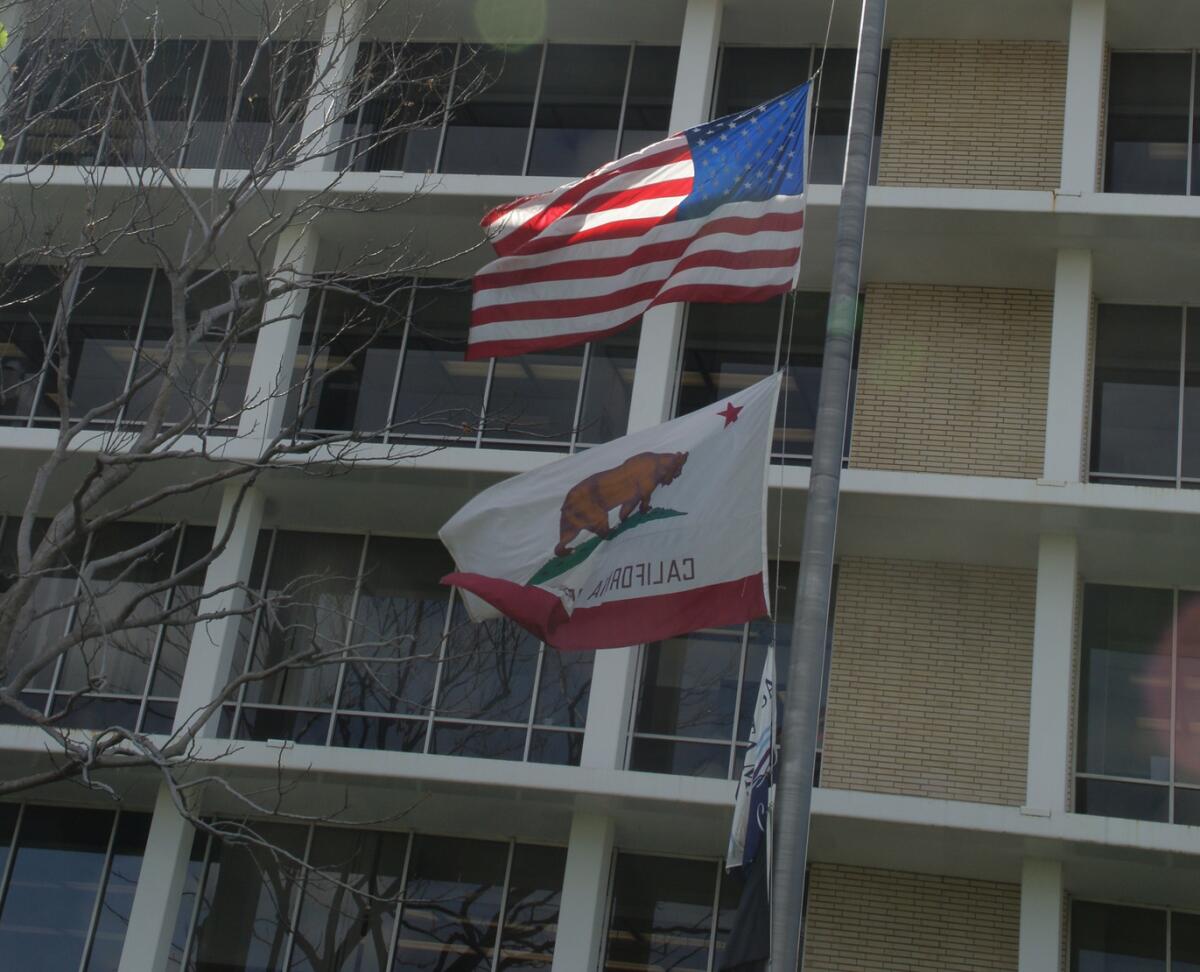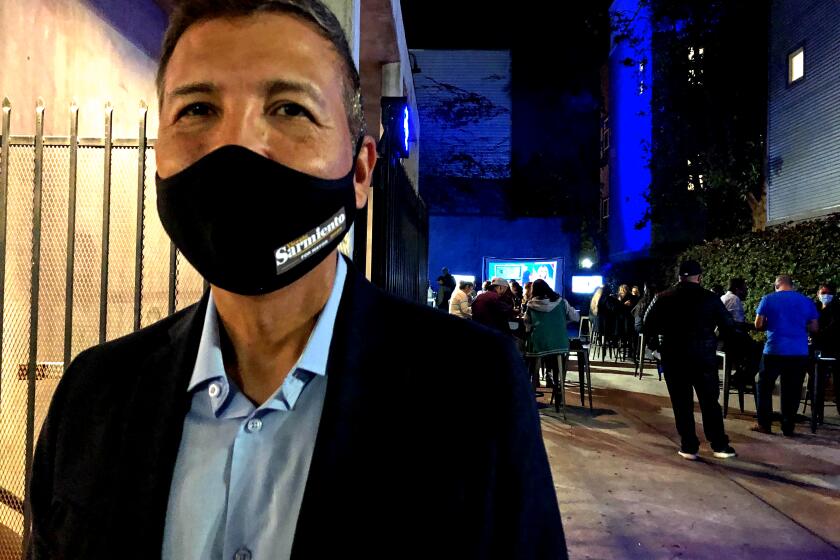Should locals be U.S. citizens to serve on city commissions? Costa Mesa Council narrowly decides no

- Share via
A recent discussion by the Costa Mesa City Council about district residency requirements for planning commissioners — and whether they ought to be registered voters — spawned a debate on American citizenship and representation that deeply divided council members.
And, after a narrow 4-3 vote, planning commissioners will neither be forced to reside within the voting districts they represent, nor be U.S. citizens to serve.
The panel gave a second reading Tuesday to an ordinance that would allow commissioners to change residences more broadly within Costa Mesa and give council members, who nominate commissioners in their respective districts for a full vote by the council, more discretion in filling vacancies.
Several residents speaking in comments Tuesday and at a July 20 meeting in which the matter was first broached, however, decried the move.
“[Our] six districts need to be represented equally and fairly,” said Mary Spadoni. “Every district is unique and needs its representation.”
Some took issue with a provision in the new ordinance that commissioners would not have to be qualified electors registered to vote in U.S. elections. Currently, state law allows undocumented residents to hold public office.
Santa Ana’s thousands of undocumented residents will now have the ability to serve on city boards, commissions and committees.
The provision was added at the July 20 meeting, after an outdated council policy accidentally included in a staff report prompted fresh discussion about whether green card holders, DACA recipients and other lawful residents who cannot vote should be allowed to serve as commissioners.
Hengameh Abraham, an Iranian immigrant who became a U.S. citizen at 21, said not requiring citizenship was a slap in the face to all the qualified voters who elected the council.
“The only people who should be representing constituents, at any level, should be invested enough in their community that they are registered voters themselves,” she said.
Former Costa Mesa Mayor and Councilwoman Sandy Genis agreed.
“All public officers under the requirements of the state of California must swear allegiance to the Constitution of the United States and the Constitution of the State of California and swear to defend that,” she said, “so they should be an elector.”
New California laws for those here illegally include letting them serve on government boards and banning immigration arrests in state courthouses.
Councilwoman Arlis Reynolds made a motion to adopt the ordinance on second reading, explaining why she’d previously suggested removing the qualified elector provision from the ordinance language.
“It’s one of my highest priorities that every Costa Mesa resident feels welcomed to be a part of our processes,” she said, citing the city’s mission statement to promote a safe and inclusive community for all. “We are a safer city and a better city if every resident has an opportunity to be an active member of our community.”
But Mayor John Stephens, who previously supported removing the district residency and voter requirements, made a substitute motion to keep the qualified elector provision, saying his thinking had changed.
“Planning commissioners make decisions and actually vote on items that are very important to our community, many of which never come to the city council,” he said. “That person who sits in that position should be able to also vote — vote for council, vote for the governor (and) the president.”
Mayor Pro Tem Andre Marr, a U.S. Navy veteran, cited a 2003 New York Times article about Marines who were not U.S. citizens but died serving in Operation Iraqi Freedom. She said the idea that noncitizen residents are somehow less qualified to serve their community or less representative of America offended her.
“There are plenty of green card holders who would absolutely give their lives to this country,” she added. “I’m so frustrated with the idea that those people are still not good enough to represent us on the planning commission.”
Stephens was the only panelist to vote for his substitute motion. Reynolds’ original motion narrowly passed 4-3 with Stephens and council members Manuel Chavez and Don Harper opposed.
All the latest on Orange County from Orange County.
Get our free TimesOC newsletter.
You may occasionally receive promotional content from the Daily Pilot.





